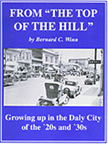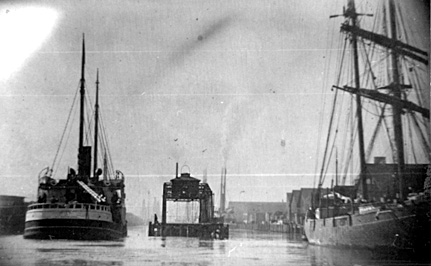
|
INCLINE PRESS 2 Townsend St., 2-213 San Francisco, CA 94107 (415) 284-0127 |
|||||||||||||||||
|
|
|||||||||||||||||
|
|
|||||||||||||||||
|
|||||||||||||||||
|
SAN FRANCISCO PHOTOS |
|||||||||||||||||
|
|
|||||||||||||||||
|
|
|||||||||||||||||
|
|||||||||||||||||
|
|
|||||||||||||||||
|
|||||||||||||||||
|
|
|||||||||||||||||
|
|||||||||||||||||
|
|
|||||||||||||||||
|
|||||||||||||||||
|
|
|||||||||||||||||
|
|||||||||||||||||
|
|
|||||||||||||||||
|
|||||||||||||||||
|
|
|||||||||||||||||
|
|||||||||||||||||
|
|
|||||||||||||||||
|
|||||||||||||||||
|
|
|||||||||||||||||
|
|||||||||||||||||
|
|
|||||||||||||||||
|
|||||||||||||||||
|
BOOKS |
|||||||||||||||||
|
|
|||||||||||||||||
|
|
|||||||||||||||||
|
|||||||||||||||||
|
|
|||||||||||||||||
|
|||||||||||||||||
|
|
|||||||||||||||||
|
|||||||||||||||||
|
|
|||||||||||||||||
|
|||||||||||||||||
|
|
|||||||||||||||||
|
|||||||||||||||||
|
|
|||||||||||||||||
|
|||||||||||||||||
|
|
|||||||||||||||||
|
|||||||||||||||||
|
|
|||||||||||||||||
|
|||||||||||||||||
|
|
|||||||||||||||||
|
|||||||||||||||||
|
|
|||||||||||||||||
|
|||||||||||||||||
|
|
|||||||||||||||||
|
|||||||||||||||||
|
|
|||||||||||||||||
|
|||||||||||||||||
|
|
|||||||||||||||||
|
|||||||||||||||||
|
NON-SAN FRANCISCO PHOTOS |
|||||||||||||||||
|
|
|||||||||||||||||
|
|
|||||||||||||||||
|
|||||||||||||||||
|
|
|||||||||||||||||
|
|||||||||||||||||
|
|
|||||||||||||||||
|
|||||||||||||||||
|
|
|||||||||||||||||
|
|||||||||||||||||
|
|
|||||||||||||||||
|
|||||||||||||||||
|
OTHER STUFF |
|||||||||||||||||
|
|
|||||||||||||||||
|
|
|||||||||||||||||
|
|||||||||||||||||
|
||||
|
|
||||
|
|
 Since not everyone is familiar with drawbridges, I offer the following explaination: A drawbridge is any bridge with the capacity to move a section of its roadway to allow or prevent water vessels from passing through. The moveable section may lift straight up (vertical lift); rotate180 degrees (swing); float out of the way (pontoon); lift up from one end (bascule); fold away (folding); slide away horizontally (retractable). Also, unlike "fixed" or "rigid" bridges, drawbridges are machines and are subject to regulations that apply to both their roadway and the waterway they span. The terms drawbridge and moveable bridge are interchangeable. During San Francisco's long history of drawbridges, all of its moveable bridges have spanned either Mission Creek, Mission Bay or Islais Creek (formerly DeVerrs Creek). In the three linked pages ahead are brief histories and, in most cases, photos of the Brannan, Fourth, Sixth, Seventh, Third Street drawbridges over Mission Creek and also the Islais Creek drawbridges. In 1854, one of California's earliest drawbridges spanned Mission Creek near where today, Brannan Street intersects Ninth Street. The creek at that time was navigable to Laguna Dolores, a small lake that occupied the area now bounded by Guerreo and So. Van Ness, between 15th and 19th Streets. That bridge survived until 1866-67 when it was replaced by another moveable bridge. There are no known photos of either of those spans.  Known only as Long Bridge, this wooden trestle bridge ran south from the foot of Fourth Street to the Bay View Race Track, near Hunter's Point. Built in 1867 by the Bay View and Potrero Railroad at a cost of $60,000, it had moveable spans over the shallow waters of Mission Bay and the mouth of both Mission and Islais Creeks. Bancroft Library photo.  Looking west up Islais Creek from S.F. Bay, the 1918 view above shows Long Bridge in the background, stretching nearly the full width of the photo. S.F.P.W. photo. The Fourth Street Bridges. The first drawbridge to span Mission Creek at Fourth Street was a wrought iron swing bridge built in 1875 to carry the tracks of the Southern and Western Pacific Railroad. That bridge served less than twenty years and was repaced in 1892 by a steel swing span. After some very hard years of service, it was removed and replaced in 1916-17 by the existing bascule bridge. The following three photos are of the 1892 version of the Fourth Street Bridge.  This view through the span looks northwest toward the city. The bridge operator opens and closes the bridge from a control booth above the center of the moveable span. The booth can be seen in the photo. Roy Graves photo.  Taken from a point east of the bridge this view shows the bridge in the closed position. There was another swing bridge further up Mission Creek at Sixth Street at the time of this photo. Roy Graves Photo.  The same bridge, but in the open position looking east toward the bay. Ships could pass on either side of the center. In this photo, a steamschooner appears to be heading through the north draw of the bridge. A very busy span, 6700 ships passed through its draw in the year 1901. Roy Graves photo.  The existing Fourth Street Bascule bridge (Peter R. Maloney Bridge) as seen from Blanche's garden in 1994. Completed in 1917, it replaced the swing span constructed in 1892. This is one of three Strauss designed bridges in San Francisco, the other two being the "Lefty O'Doul Bridge and the Golden Gate Bridge. S.F.P.W. photo.  
|
|
||